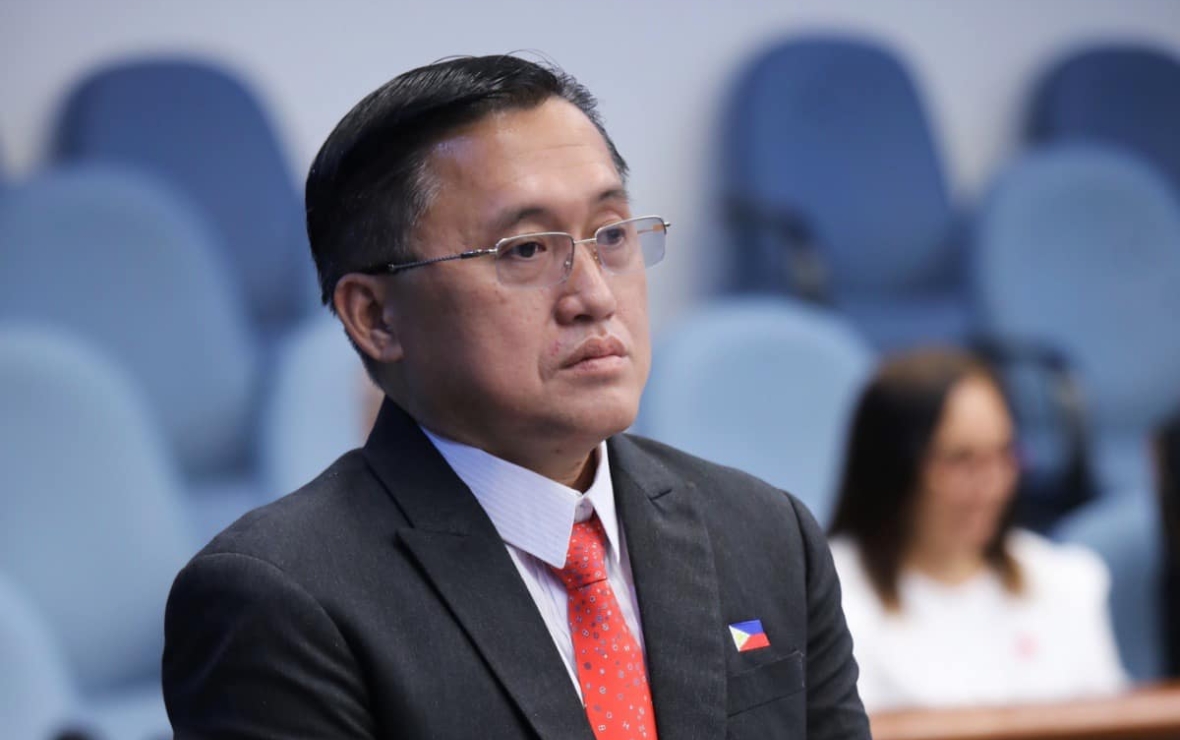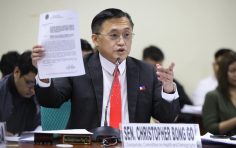To safeguard the integrity of the medical profession in the country, Senator Christopher “Bong” Go has proposed implementing a Philippine version of the U.S. Stark Law, or the physicians’ self-referral law, aiming to prohibit physicians from financially benefiting from patient referrals to specific healthcare services.
This proposal was made following the alleged unethical practices in the pharmaceutical industry, mainly the suspected multi-level marketing (MLM) scheme by the company Bell-Kenz Pharma.
“Isa rin po sa gusto nating gawin ngayon ay kung pwede po tayo magkaroon ng batas, just like ito pong U.S. Stark Law, the physicians’ self-referral law,” said Go who presided the public hearing conducted by the Senate Committee on Health and Demography on Tuesday, April 30.
This regulation prevents physicians from directing patients to receive specific health services from entities where the physician or their immediate family member has a financial interest, except under certain permitted circumstances.
“Dito sa Pilipinas, wala tayong batas directly and explicitly prohibiting physicians na mag-refer po ng mga pasyente sa mga health… Importante rito paano tayo makabuo ng batas. ‘Yan po ang pag-uusapan natin dito,” he added.
This initiative stems from concerns over the commercialization of healthcare, where it is reported that some doctors receive commissions, luxury goods, and even vehicles for promoting, referring and prescribing specific pharmaceutical products.
Go said that reports suggest that some pharmaceutical companies allegedly offer doctors incentives, including commissions, luxury watches, plane tickets, and even expensive cars, to promote their medications and services. This has raised concerns about potential conflicts of interest in the medical community.
Go also cited existing regulations that aim to uphold ethical standards in healthcare, such as Republic Act No. 6675, or the Generics Act, which mandates prescriptions in generic names, and RA 9502, or the Universally Accessible and Affordable Quality Medicines Act, empowering the Department of Health (DOH) Secretary to curb unethical drug promotions.
Further, he referenced RA 11223, or the Universal Health Care Law, underscoring the obligation of drug manufacturers to disclose financial relationships with healthcare providers.
“Section 35 of RA 11223 also provides that all manufacturers of drugs, medical devices, and medical supplies registered by the FDA (Food and Drug Administration) shall collect and track all financial relationships with health care professionals and health care providers and report these to the Department of Health,” he explained.
Recent Senate hearings have illuminated potentially exploitative marketing strategies by Bell-Kenz Pharma. The company has engaged certain doctors—who might also hold shares in the firm—to actively push patients toward purchasing their prescription drugs.
Furthermore, accusations have surfaced that doctors meeting specific “sales quotas” are rewarded with financial incentives, gifts, or even trips abroad. These allegations have prompted formal resolutions by Senators JV Ejercito and Raffy Tulfo and privilege speeches by Senators Jinggoy Estrada and Tulfo, calling for a thorough investigation into these practices.
This has also prompted the DOH to reiterate the need for high ethical standards in healthcare through Department Circular No. 2024-0141.
While the accusations have led to doubts about some doctors, especially those seen driving luxury cars, Go said that it is essential to recognize that many doctors are financially capable of buying their vehicles and are generally trusted with public health.
“Most of our doctors, mayayaman po ‘yan, may kakayahan po silang bumili ng sariling sasakyan. They are trustworthy at mapagkatiwalaan natin sila, kaya po pinagkatiwala natin sa kanila ang ating kalusugan,” said Go.
Go emphasized that the healthcare industry prioritizes profit over patient welfare, significantly harming the underprivileged.
“Ang problema dito parang naging negosyo na ang paggamot, hindi na interes ng pang-kalusugan. Pinagkakakitaan na, sa huli, ang talo iyong mga pasyente, lalo na ang mga mahihirap,” Go stated.
The senator then called on concerned agencies such the DOH; regulatory bodies such as the Professional Regulatory Board, Securities and Exchange Commission, Philippine Competition Commission, among others; as well as medical associations to ensure that the medical profession focuses on their primary goal: the patients’ health and well-being.
“Kaya sabi ko po, dapat kung mag-prescribe ang ating mga doctors, unahin dapat kung ano yung ikakagaling at ikakabuti ng pasyente, unahin po ang ikakagamot sa pasyente, hindi po ikakagamot o ikakayaman ng pharmaceutical companies,” he urged.
Highlighting the fundamental duty of medical practitioners, Go reminded them of their commitment to the well-being of their patients, which should always come first.
“Kaya nga kayo naging doctor para gamutin ang pasyente, kung ano ang makakabuti sa kanila. Interes ng tao, interes ng bayan. Kailangan po nating masiguro na hindi malalagay sa alanganin ang buhay ng mga kababayan natin, lalung-lalo na po yung mga pasyente,” Go concluded.
During the hearing, Mr. Malasakit Go also tackled other pressing health issues, including the implementation and funding challenges of the Health Emergency Allowance, the functionality of Malasakit Centers, and the deployment of resources to health facilities such as Super Health Centers and Regional Specialty Centers.








